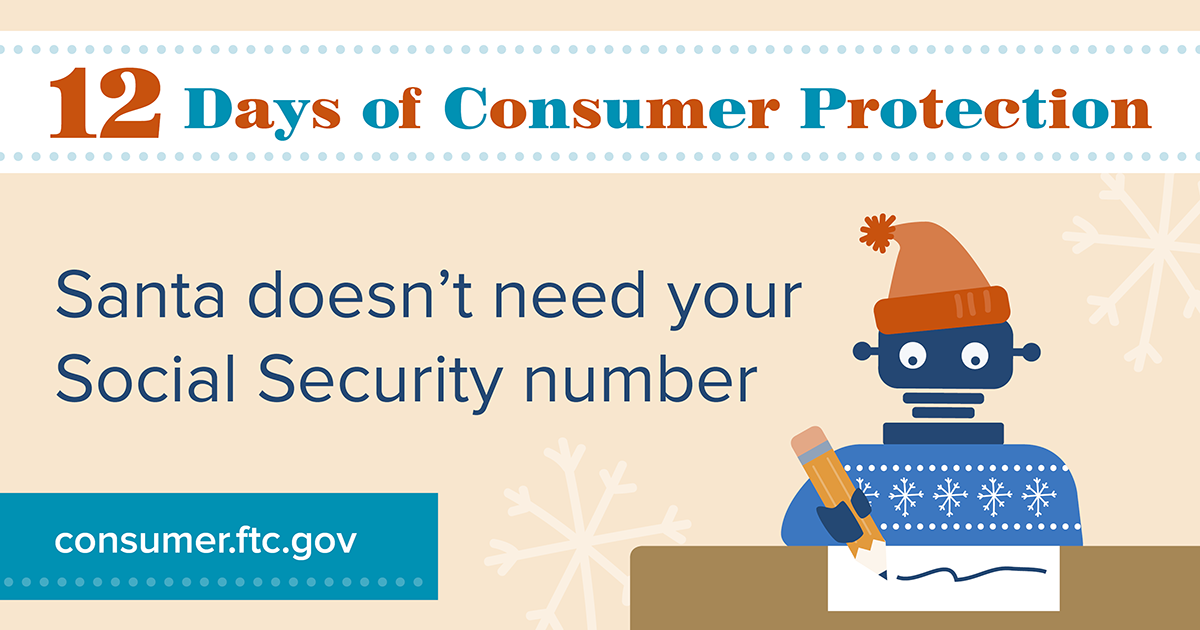This year, during the pandemic, your holidays might be moving a bit online. On the 10th day of Consumer Protection, maybe you’re planning to send e-cards to family and friends. Or maybe your kids are writing their letter to Santa online, using a site that promises a customized letter back from Santa. Before you share your personal information — and certainly before you pay:
-
Check out the website. Do a quick online search for the site or company name, plus the words “complaint,” “review,” or “scam.” What do people say about them? (Knowing, of course, that those glowing reviews could be fakes…)
-
Share only what you need to share. Does the site really need your home address, your age, or access to your contacts? And none of these companies needs your bank account or Social Security number. (Frankly, Santa probably already knows, so why would he ask?)
-
Don’t click links in unexpected texts or emails. Nothing good comes of that. Instead, check them out first, and then type in the URL yourself so you know where you’re headed.
-
Ignore calls for immediate action. Scammers try to get you to act before you have time to think. Take your time. Legit offers will still be there.
If you decide to move forward with your card or Santa letter, pay with a credit card to get the best protections. But only pay if the site’s URL starts with “https.” That means your transaction will be encrypted — but that, alone, doesn’t mean the site is legit.
If you spot a scammy e-mail, text, or website, tell your friends and family so they can avoid it, too. Then tell the FTC at ReportFraud.ftc.gov.

